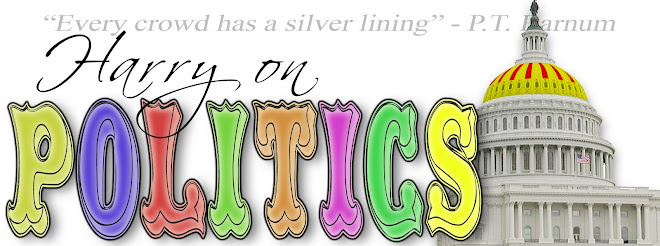Let's take a moment to note that everyone can already access the internet for free at their public library.
But even beyond that, it just goes to show how out of touch the government really is. For example, while the government is arguing for public construction of an internet that is about 10 times faster than what exists - and is satisfactory today- the hottest computer item these days are netbooks - small, inexpensive computers which are suited primarily for e-mail and internet browsing - tasks not at all reliant on super-fast internet. In other words, not needed.
This is typical of bureaucrats without a clue: let's throw technology at it. In this case, a solution which creates problems rather than solves them.
Why is it bad? For one, it places a requirement on businesses to relinquish bandwidth for which they have already paid (to the government, I might add) in order to provide unnecessary service (ultra high speed internet where modem speeds are adequate). For another, it takes away valuable bandwidth from spaces which need more already (the DOD, for example). For a third, why should people spend money to internet and phone companies when the government is giving this away for free? Fourth, there is no reason for the existing companies to maintain, much less improve, their services when others are flocking to the government's free service. Fifth, when the government system gets rolling (with the huge number of people certain to use it), the commercial system is sure to sag in performance. Sixth, the government is yet again meddling in a private market.
These are all excellent reasons to scrap the plan, all sure to fall on deaf progressive ears. The hallmark of the Democrats: let's see how much we can muck up a profitable competitive market. Shameless, they are. Power-hungry, too.
Who Hates the National Broadband Plan? - Reviews by PC Magazine
Are you ready for more Internet? That's the question that U.S. regulators will soon be asking, as Reuters is reporting that the Federal Communications Commission is set to reveal the National Broadband Plan on March 16.
While some details of the plan remain to be seen, FCC Chairman Julius Genachowski has already mentioned a few of the key highlights that the FCC will be recommending to Congress. These include a goal to connect 100 million Americans to 100 Mbps Internet within 10 years and the desire for television stations to give up unused spectrum to assist a growing market for wireless services, amongst others.
What is new, or perhaps unexpected, is some of the backlash that's coming back at the FCC from affected parties, including the very consumers that the National Broadband Plan is, in theory, designed to help.
...The FCC's National Broadband Plan isn't a complete boon for wireless companies--the FCC is also allegedly proposing a free (or low-cost) nationwide wireless network. The details of this plan haven't been released beyond that generalized description. However, the hint of it has been enough to rile up various mobile providers.
Not only would the government suddenly jump into the business of competing against established carriers, but--worse for consumers--said competition could dissuade mobile providers from caring as much about the general upkeep of their networks. For carriers, the question is this: Why invest in a paid-for network if everyone's flocking to the free solution just around the corner?
... A smattering of Internet responses from consumers reacting to some of the talked-about ideas in the National Broadband Plan reveals a fear that government regulation could stifle competition or otherwise enjoin U.S. policy with network performance. Here are a few examples of the general Web response to the FCC's thoughts:
"This will result in government takeover of the industry. It won't happen overnight, but incrementally. They already have the name for it: National Broadband, like National Health Care. They'll build infrastructure, increase access, give free access to "the underprivileged", and work with the big providers to squeeze out competition (corporate fascism)." --ebystrom

No comments:
Post a Comment